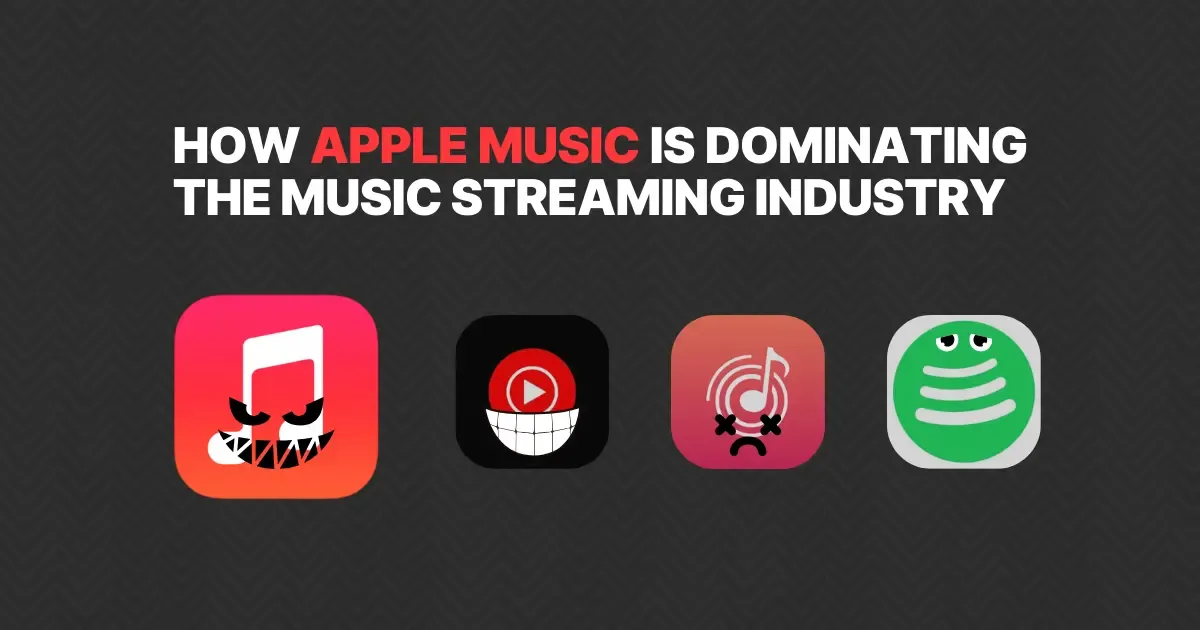The music streaming industry has seen significant changes over the past decade, with various platforms vying for dominance. However, one platform has managed to carve out a unique space for itself—Apple Music. This blog explores how Apple Music is shaking up the market, outpacing its competitors, and setting new standards for audio quality, user experience, and strategic partnerships.
The Fall of Wynk Music and the Rise of Apple Music
Wynk Music, once a promising streaming service under Airtel, has recently seen a decline, leading to its closure. The reason? Apple Music. Airtel, a major telecom player in India, has decided to phase out Wynk Music in favor of Apple Music, reflecting the latter's growing influence in the market. This move is part of a broader deal between Airtel and Apple, where Airtel users now get access to Apple TV Plus content through Airtel Extreme. The shift signifies Apple’s strategic positioning to expand its ecosystem, making its premium services more accessible to a broader audience.
Apple Music’s Competitive Edge
Apple Music’s success can be attributed to several key factors:
- Superior Audio Quality: Apple Music is renowned for offering the highest quality audio among streaming services. With its entire library available in Lossless and high-resolution audio, it surpasses competitors like YouTube Music and Spotify, which do not prioritize streaming quality as highly. This focus on audio excellence appeals to audiophiles and casual listeners alike, setting Apple Music apart in a crowded market.
- Competitive Pricing: Despite its premium features, Apple Music offers competitive pricing, especially in partnership deals like the one with Airtel. This makes it more accessible to a larger audience, challenging platforms like Spotify and YouTube Music, which have been increasing their subscription rates.
- Strategic Partnerships and Ecosystem Integration: Apple’s ecosystem strategy is a significant driver of its success. By integrating Apple Music with other services like Apple TV Plus and offering them as bundled deals through partners like Airtel, Apple is not just selling a music service but a comprehensive digital experience. This ecosystem lock-in is a powerful tool, encouraging users to stay within Apple’s suite of services.
The Impact on Competitors
Apple Music’s rise has put pressure on other streaming platforms. Spotify, which has long been a leader in the music streaming industry, is now facing stiff competition. Despite having a strong recommendation system and a diverse library that includes independent artists and podcasts, Spotify has struggled to match Apple Music’s audio quality and strategic partnerships.
YouTube Music, another significant player, offers the largest video library and a wide range of original content. However, its streaming quality and pricing structure are areas where Apple Music has a clear advantage. Additionally, Apple’s focus on high-quality audio and competitive pricing makes it a formidable competitor in the music streaming space.
The Future of Music Streaming: What’s Next for Apple Music?
As Apple Music continues to grow, it is likely to further consolidate its position in the market. The platform’s focus on quality, competitive pricing, and strategic partnerships suggests that it will continue to attract users from other services. Moreover, as smaller music streaming apps struggle to keep up, we may see more mergers and acquisitions, similar to the Jio-Saavn deal, as they try to survive in an increasingly competitive environment.
Apple Music’s approach to the market is not just about providing a streaming service; it’s about creating an integrated, high-quality experience that fits seamlessly into the daily lives of its users. This holistic approach is likely to be the key to its continued success and could potentially reshape the entire music streaming industry.
Conclusion
Apple Music’s dominance in the music streaming industry is a result of its strategic focus on high-quality audio, competitive pricing, and deep integration with the broader Apple ecosystem. As it continues to expand its reach through partnerships and innovative offerings, Apple Music is not just competing—it’s setting new standards for what a music streaming service can be. For competitors like Spotify and YouTube Music, the challenge will be to innovate and adapt to this new landscape, or risk being left behind.
